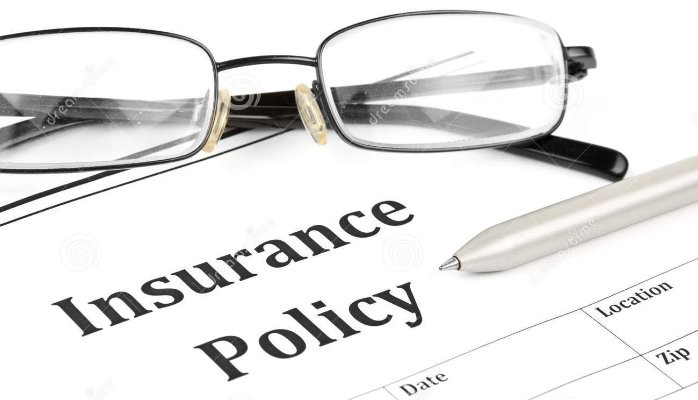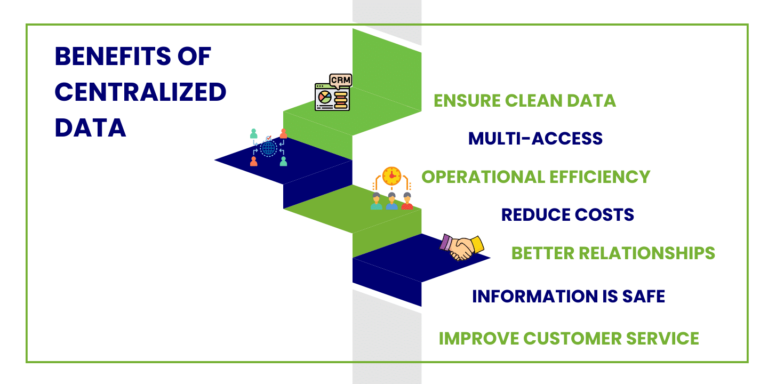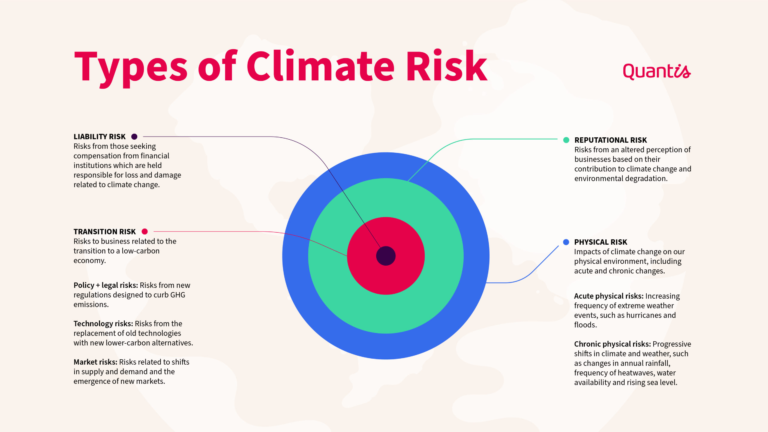Annual Commercial Insurance Review: 9 Essential Reasons
Running a successful business involves navigating various risks, making an annual commercial insurance review a critical component of effective business risk management. As your company evolves, so do its insurance needs; what provided adequate coverage last year may no longer suffice today. This annual review is essential for ensuring that your commercial insurance adequately protects your assets and operations. By assessing your current insurance coverage, you can identify potential gaps and avoid being underinsured, which could lead to significant financial losses in the event of a claim. Moreover, this proactive step allows you to uncover valuable insurance discounts that can help reduce your premium costs while maintaining comprehensive coverage.
When it comes to safeguarding your business, conducting a yearly assessment of your business insurance is crucial. As companies grow and change, their insurance requirements often shift, making it necessary to revisit and revise existing policies. This regular business insurance review not only helps ensure that you have the right level of insurance coverage but also allows you to adapt to new operational realities and market conditions. Additionally, during this thorough evaluation, you can discover potential savings through various insurance discounts that might be available to you. A comprehensive review of your insurance policies ultimately strengthens your business’s overall risk management strategy.
Understanding the Importance of an Annual Commercial Insurance Review
An annual commercial insurance review is a critical component of effective business risk management. As businesses evolve, their insurance needs can change dramatically. For instance, a small business that has expanded its operations or added new services must ensure that its insurance coverage reflects these changes. Without this review, businesses may find themselves underinsured, which could lead to significant financial setbacks in the event of unforeseen circumstances.
Moreover, the landscape of commercial insurance is constantly evolving, with new policies, coverage options, and regulatory requirements coming into play. An annual review not only helps businesses stay compliant but also allows them to reassess their coverage limits and make necessary adjustments. This proactive approach is essential for safeguarding the business’s assets and ensuring that it can withstand various risks.
Identifying Inadequate Coverage and Adjusting Policies
Inadequate coverage is one of the most pressing issues businesses face regarding commercial insurance. Over time, as a business grows, its operations, revenue, and risks can change significantly. What may have seemed like sufficient coverage last year could now leave your business exposed to risks that could lead to substantial financial losses. An annual review is an opportunity to evaluate your current insurance policies and identify any gaps in coverage.
For example, if a business has recently expanded its product line or opened new locations, the existing coverage may not adequately protect all new assets. By conducting a thorough assessment during the annual review, businesses can adjust their policies to ensure comprehensive coverage that accounts for new risks and assets, thus enhancing their overall business insurance strategy.
Maximizing Insurance Discounts During Your Review
Insurance premiums can be a significant expense for businesses, but an annual commercial insurance review provides an excellent opportunity to identify potential savings. Insurance providers often offer various discounts based on factors such as safety measures implemented, claims history, and even industry affiliations. By reviewing these factors annually, businesses can ensure they are taking advantage of every available discount, ultimately lowering their overall insurance costs.
Additionally, the annual review process allows businesses to explore new programs or discounts that may have been introduced since the last review. For instance, if a business has implemented new safety training programs or upgraded its equipment, these changes could qualify for significant discounts. By being proactive and thorough in the review process, businesses can save money while still maintaining adequate insurance coverage.
Adapting to Changes in Operations and Business Structure
As businesses grow and evolve, their operations can undergo significant changes that impact their insurance needs. Whether it’s launching new products, entering new markets, or even changing the business structure, these factors must be considered during the annual commercial insurance review. For instance, if a business transitions from a sole proprietorship to a corporation, it may face different liabilities that necessitate additional or different coverage.
Failure to adapt insurance policies to reflect these changes can expose businesses to risks that might not be covered under outdated policies. An annual review serves as a crucial touchpoint for businesses to reassess their operational changes and ensure that their insurance coverage is aligned with their current business model, thus protecting them from potential liabilities.
Evaluating Changes in Revenue and Their Insurance Implications
Significant changes in a business’s revenue can have direct implications for its insurance coverage. For example, if a business experiences substantial growth, it may need to increase its liability coverage to protect against larger claims. Conversely, if the revenue decreases, there might be an opportunity to adjust coverage to better suit the new financial realities. An annual review helps businesses evaluate their current revenue status and make informed decisions regarding their insurance needs.
Understanding the correlation between revenue changes and insurance needs is vital for effective business risk management. By analyzing financial performance during the annual review, businesses can identify whether their existing policies are over- or under-extended, allowing them to make necessary adjustments that can lead to more tailored and cost-effective insurance solutions.
Addressing New Contracts and Their Insurance Requirements
When businesses enter new contracts, especially those with clients or partners, there are often specific insurance requirements that must be met. These can include higher liability limits or additional insured endorsements. An annual commercial insurance review is the perfect opportunity to adjust insurance policies to comply with these contractual obligations, ensuring that businesses remain protected and in good standing with their partners.
By aligning insurance coverage with the terms of new contracts during the annual review, businesses can avoid potential disputes or claims that could arise from inadequate coverage. This proactive approach not only safeguards the business but also strengthens its relationships with clients and partners, demonstrating a commitment to risk management and compliance.
Expanding Operations to New Territories and Its Impact on Insurance Needs
Expanding business operations into new territories, whether across state lines or internationally, introduces unique risks that need to be addressed in insurance coverage. Each location may have different regulations, risks, and market dynamics that can affect insurance requirements. An annual review is essential for businesses to adjust their policies to ensure they are adequately covered in all operational areas.
This review process allows businesses to evaluate their exposure in new territories and ensure that they have the necessary coverage in place to mitigate risks associated with those locations. By doing so, businesses can protect themselves against potential liabilities that may arise from operating in unfamiliar or diverse environments.
Updating Fleet Insurance for Changes in Vehicle Inventory
For businesses that rely on a fleet of vehicles, changes in inventory—such as acquiring new vehicles or retiring older ones—must be reflected in commercial auto insurance policies. An annual review is an opportune time to assess the current fleet and ensure that all vehicles are adequately covered against loss or damage.
Failing to update fleet insurance can lead to gaps in coverage, leaving the business vulnerable in the event of an accident or incident. By conducting a thorough review of the fleet during the annual commercial insurance review, businesses can maintain comprehensive coverage that protects their assets and operations.
Partnering with Abbate Insurance Associates for Your Annual Review
Engaging with a trusted insurance partner like Abbate Insurance Associates is crucial for conducting an effective annual commercial insurance review. With their expertise in commercial insurance and risk management, they can help businesses navigate the complexities of insurance policies and ensure that coverage effectively meets their unique needs. Their guidance can also help identify potential discounts and adjustments necessary to protect the business adequately.
Regularly reviewing your commercial insurance policy with Abbate Insurance Associates ensures that your business remains resilient in the face of changing risks and requirements. By prioritizing this review, businesses can not only safeguard their assets but also position themselves for growth and success in a competitive market. Contact Abbate Insurance Associates today to schedule your annual review and enhance your business’s insurance strategy.
Frequently Asked Questions
Why is an annual commercial insurance review important for my business?
An annual commercial insurance review is crucial as it helps ensure that your insurance coverage aligns with your current business operations and risks. Businesses evolve, and without a review, you may find yourself underinsured, exposing your business to significant financial loss in case of a claim.
How can an annual commercial insurance review help me identify potential insurance discounts?
During an annual commercial insurance review, you can uncover new discounts that your insurance company might offer, such as those for implementing safety measures or upgrading equipment. This can significantly reduce your premium costs while ensuring you maintain adequate coverage.
What changes in operations should prompt an annual commercial insurance review?
If your business has evolved by adding new services, changing your target market, or altering your operational processes, these changes may necessitate an annual commercial insurance review to ensure your policy accurately reflects your current needs and protects against any potential gaps in coverage.
How does purchasing new equipment affect my annual commercial insurance review?
Investing in new equipment or increasing your inventory can impact your insurance needs. An annual commercial insurance review allows you to update your policy to include these new assets, ensuring that you are fully protected against loss or damage.
How can changes in revenue influence my commercial insurance coverage during an annual review?
Changes in revenue can directly impact your insurance needs. If your business has grown, you may require higher liability coverage. Conversely, if revenue has decreased, an annual review can help you adjust your coverage to better align with your current financial situation.
What should I consider regarding business structure during my annual commercial insurance review?
If your business structure has changed, such as transitioning from a sole proprietorship to a corporation, it can affect your insurance requirements. An annual commercial insurance review ensures that your coverage is suitable for your current business structure, addressing any new liabilities.
How do new contracts affect my annual commercial insurance review?
Entering into new contracts often comes with specific insurance requirements, such as increased liability limits. Your annual commercial insurance review allows you to update your policy accordingly, ensuring compliance and safeguarding your business relationships.
What risks should I consider if my business expands to new territories during the annual commercial insurance review?
Expanding operations into new territories can introduce different risks. An annual commercial insurance review ensures that your coverage is adequate for these new areas, protecting your business regardless of where you operate.
How does my vehicle fleet impact my commercial insurance during an annual review?
Changes to your vehicle fleet, such as adding new vehicles or retiring old ones, should be updated in your commercial auto insurance policy. An annual commercial insurance review helps ensure that your entire fleet is adequately covered.
| Key Point | Explanation |
|---|---|
| Inadequate Coverage | Annual reviews help assess if current coverage meets evolving business needs, preventing underinsurance. |
| Missing Discounts | Identify new discounts offered by insurers for safety measures or equipment upgrades. |
| Changes in Operations | Adjust coverage to reflect operational changes, protecting against gaps in insurance. |
| New Equipment or Inventory | Update policies to include new assets and ensure full protection against loss. |
| Changes in Revenue | Reevaluate coverage based on revenue changes to ensure adequate liability protection. |
| Changes in Business Structure | Reflect changes in business structure in your insurance policy to align with new liabilities. |
| New Contracts | Ensure policies meet new contract requirements for liability and coverage. |
| Working in a Larger Territory | Extend coverage to new operational areas to address new risks. |
| Changes to Your Fleet | Update auto insurance to reflect changes in vehicle fleet for adequate coverage. |
Summary
An annual commercial insurance review is crucial for every business to ensure that their coverage is adequate and relevant to current operations. This review process helps identify any gaps in coverage, discover potential discounts, and adjust policies to reflect changes such as new equipment or changes in revenue. By prioritizing an annual commercial insurance review, businesses can effectively safeguard their assets and mitigate risks associated with unforeseen events.







